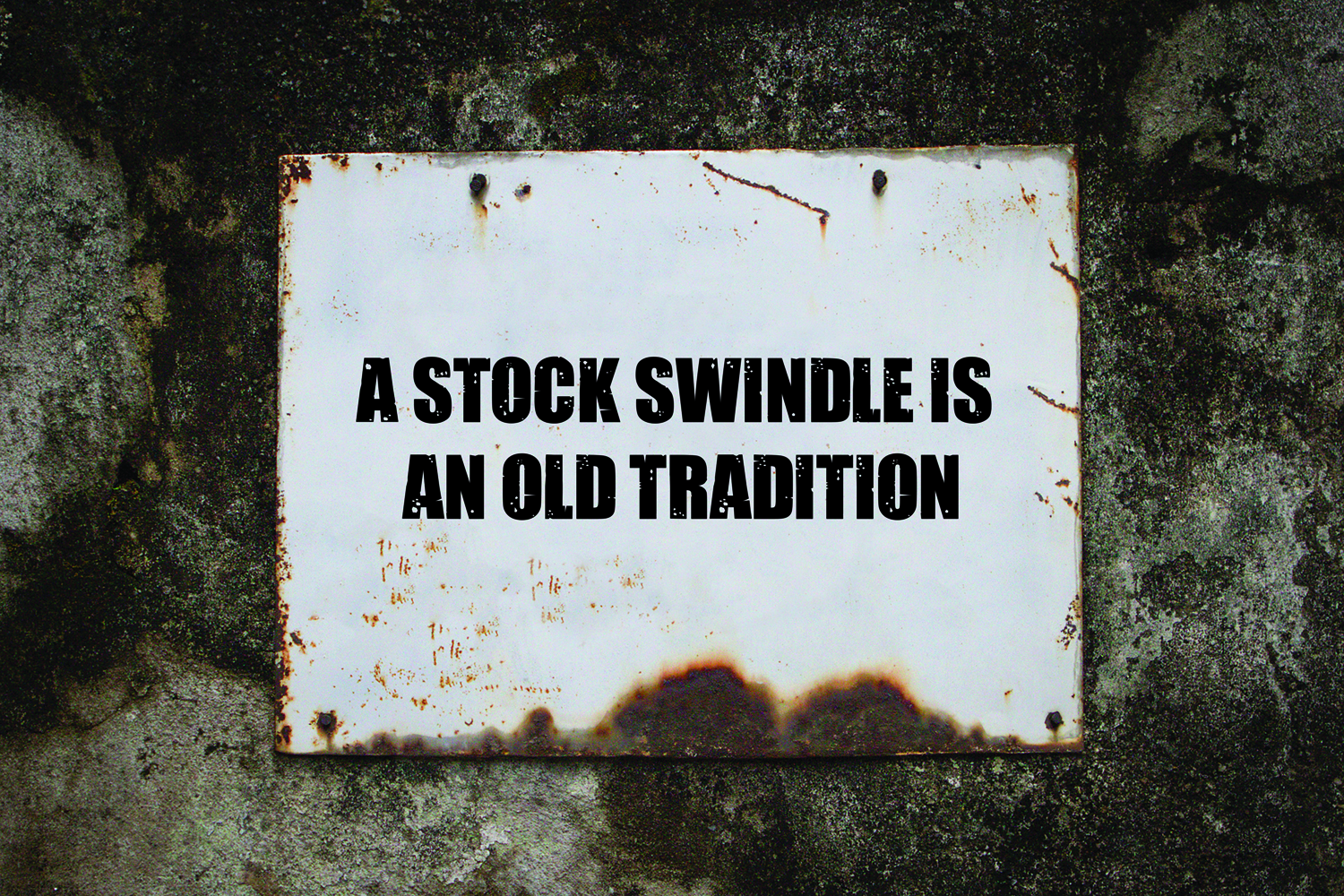Protect your assets
Protect your assets
If you have assets—money, time, expertise, capability—there are people readying and willing to steal them.
This column is about the assets side of business. By assets, I mean money but also time, expertise and capability. The thing is, if you have assets, there are people who would steal those assets. I recently was contacted by strangers who wanted to use my expertise and capability to get money from third parties. It reminded me of events that I lived through many years ago. Here is that story.
About 1980, I learned the abbreviation OPM, which was used by stockbrokers and other money people to mean "other people's money." I was 28 years old and just starting my shop, and I was hired to make equipment for three men who did business together. They were the age of my parents. It was the time of the OPEC oil embargo, and alternative fuel was the rage. The men were a stockbroker, lawyer and real estate investor. They were from old-money families. I, on the other hand, am from a humbler working-class background.
The men wanted a device powered by solar energy that made alcohol fuel. The concept was timely from the point of view of an investor. Solar energy collectors were in their infancy, and there was no commercial solar panel that made electricity. I dreamed of being the next Thomas Edison and was dazzled by the men. Thinking that this was my big chance, I went to work. I made a little gadget — about the size of a briefcase — that could produce a small amount of low-proof alcohol. The broker and I went to Boston to give a presentation to wealthy people at the lawyer's office, which overlooked Copley Square, a high-rent neighborhood.

A joint-stock company, which had different names at multiple points, was formed and paid me to develop a more commercial alcohol production system. I built such a thing at my shop and got a salary. Stock also was promised but never materialized. I created a system with a parabolic mirror that concentrated sunlight and powered an alcohol still. A patent was applied for, granted and assigned to the broker.
The company rented industrial space with an office and hired a business manager and secretary. I brought the equipment that I had made to that facility and then worked there. Looking back, I was sucked in inch by inch.
The prototype was a portable distillery on wheels that made 180-proof alcohol from corn. Yup, high-test moonshine with no smoke for the revenuers to spot. But people did come to see it.
I never was party to business matters; I was asked for technical solutions. The company branched out into other forms of alternative fuel production. Making methane gas from animal waste was another hot topic. There was an egg farm in Maine that housed 3 million chickens. That's a lot of poop. I was flown there with an engineer from an international construction company in that company's plane to survey the farm. Then I designed a system to use the chicken poop to generate methane to power electric generators. My design was for a multimillion-dollar facility.
I met Wall Street operatives and people with big wealth. There was a presentation for rich people at the Algonquin Club, which was a private social club in Boston with an exclusive membership. Alcohol, the drinking kind, flowed. A while after the party, I got a phone call from one of the three men and was told I was out of the picture. I never received stock and had no legal recourse. Some months after that, I was interviewed by an FBI special agent. Live and learn. A stock swindle is an old tradition.
I think that the three men were not looking to sell equipment but rather to acquire other people's investment money. For some folks, investing is a zero-sum game. In the 1920s, that was the foundation of the Kennedy fortune. Joseph Kennedy, father of the future president, used insider trading and fraud to milk the stock market. That type of businessperson is still around as evidenced by recent events in California. Biotech firm Theranos made fraudulent claims and sold more than $700 million in stock while former Secretary of State George Shultz was on the board of directors touting the company. Beware.
Postscript: Theranos was shut down by the Securities and Exchange Commission in 2018. Several months ago, former CEO Elizabeth Holmes was found guilty of three counts of wire fraud and one count of conspiracy to commit wire fraud. Shultz died last year. He had joined the company in 2011 and helped it raise money. Shultz introduced Holmes to the big shots.





